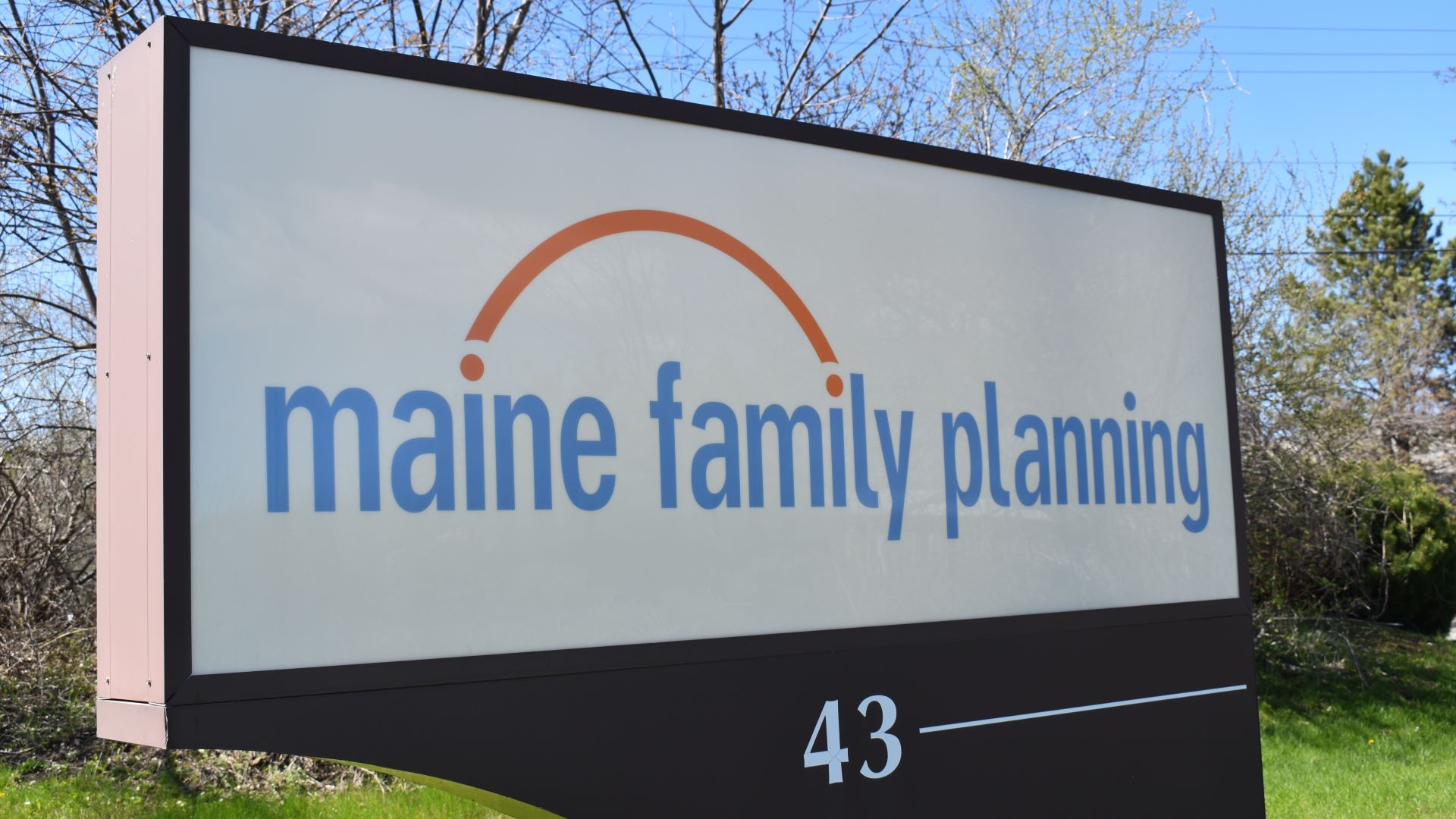Abortion will remain legal and available in Maine despite a looming Supreme Court decision that is expected to return power to the states to decide how access to the procedure should be governed.
Maine abortion providers Tuesday said the court’s decision will not have an immediate effect on women seeking the procedure in the state. State law has protected access to it for nearly 30 years, yet abortion opponents said the upcoming decision rightfully returns control to the states and could lead to the re-evaluation of those laws.
Abbie Strout-Bentes was sitting in bed with her 6-month-old daughter Monday night when she saw on social media that a draft of the court’s upcoming opinion had leaked and was published by Politico. She works as the director of community engagement for the Mabel Wadsworth Center, an independent clinic that offers abortion services in Bangor.
“I thought, ‘Wait, this can’t be real.’ We have been preparing for the worst outcome of the decision and it’s not shocking, but we did not expect the information to be leaked and to get this information so soon,” Strout-Bentes said. “So in that regard it was pretty shocking.”
The center provided approximately 300 in-clinic and medication abortions last year.
A draft opinion authored by Justice Samuel Alito shows the nation’s highest court is poised to overturn its nearly 50-year precedent protecting the right to abortion and return power to decide how it should be accessed to the states. The leaked opinion is for the Dobbs v. Jackson Women’s Health Organization case that centers on a Mississippi ban on abortions after 15 weeks of pregnancy.
The leak comes two weeks after the 29th anniversary of Maine’s Reproductive Privacy Act, which codified the right to access abortion services in Maine. The state’s abortion providers found themselves reassuring patients on Tuesday that abortion was legal and would remain legal in Maine even if the Supreme Court overturns the landmark cases Roe v. Wade and Planned Parenthood v. Casey this summer.
Maine Family Planning was doing “damage control” at its 18 clinics across the state Tuesday in response to the news, said its CEO and president, George Hill.
“We’re trying to get the word out to patients through our various networks: board members, supporters (and) patients, who are coming in to see us today to let them know abortion is still available in the United States and it’s certainly available in Maine. And it will be after the Supreme Court issues its final decision,” Hill said.

The court’s decision will affect whether a state can restrict abortions, not whether the states can offer abortion, Hill said. Maine lawmakers have already protected the procedure and it does not have a “trigger” ban — a law or constitutional amendment that would take effect if Roe is overturned — like some other states, he said.
There were 2,040 abortions in Maine in 2017, and a 7% decline in the abortion rate in the state between 2014 and 2017, according to data from the Guttmacher Institute, a research organization that supports abortion rights.
“Maine is in a good position to help patients with their needs, and we’re also in a good position if there are states around us that are implementing restrictive abortion laws,” Hill said.
Karen Vachon, executive director of Maine Right to Life, which opposes abortions, said a final ruling from the Supreme Court won’t change anything in Maine overnight. The larger impact is it gives the power to states to decide how to handle it.
“When it comes to public policy, especially policy as controversial and sensitive as abortion, it really frankly belongs at the state level,” Vachon said. “It lets the people have a voice and lets the policy be decided by the people.”
American’s opinions on abortion have remained steady, according to a 2020 Gallup poll that Vachon cited. The poll was based on telephone interviews with a random sample of about 1,000 Americans and found 48% of Americans support abortion and 46% oppose it. (The poll has a margin of error of 4 percentage points).
A 2021 Pew survey of 5,100 Americans found that 59% said abortion should be legal in all or most cases.
Vachon said she disagrees abortion as reproductive healthcare. She said she’s excited about what could come as a result of the forthcoming ruling.
“How I feel about the possibility of overturning Roe: Frankly, I get excited at the prospect,” Vachon said. “And I think that Mainers probably should get excited, too.”
While legal abortion is protected in Maine, future laws could restrict or ban abortion, so “elections matter,” said Nicole Clegg, senior vice president of public affairs for Planned Parenthood Maine Action Fund.
And opponents will continue to push for abortion bans across the country, she said.
“We should be really clear-eyed about that,” Clegg said. “If we lose Roe in the next month or so, and we now have 19 to 26 states without access to safe and legal abortion, our opposition is going to move to states like Maine and try and restrict our rights.”
Gov. Janet Mills said Tuesday she would “fight with everything I have” to protect abortion rights. Her Republican opponent, former Gov. Paul LePage, said he has a “proven history of supporting life” and indicated support for restrictions, but did not specifically indicate where he stood on changes in state law.
Last year, 108 abortion restrictions were enacted in 19 states — the most in any year since 1973, according to the Guttmacher Institute. About 44% of all abortion restrictions since the original Roe v. Wade ruling were enacted in the past decade.
Abortion providers in Maine are not experiencing an increase in women traveling from out of state to seek care at this time. Some of that can be attributed to limited transportation options and the location of clinics within the state.
“We’re not really the easiest clinic to get to from outside Maine, but we are imagining a ripple effect of longer wait times at clinics closer to where folks are actually having to leave their state, and that we will likely see an increase in people traveling for care,” said Stout-Bentes, the clinic’s director of community engagement.
Some women want to have an abortion in the privacy of their home and choose a medication abortion if it has been less than 11 weeks since their last period, Stout-Bentes said. Others want someone with them throughout the process and opt to have the procedure in a clinic, she said. The Mabel Wadsworth Center in Bangor provides in-clinic suction abortion up to 14 weeks after the woman’s last period, she said.
Maine Family Planning is also using telehealth to provide medication abortion access to women in rural Maine.
The Supreme Court is expected to release its official opinion in June or July. Until then, Maine abortion providers said they are preparing while waiting for the final decision.
Both sides of the abortion debate hold strong opinions about whether the procedure should be available. Maine Family Planning is not expecting an increase in violence against its clinics in light of the likely Supreme Court ruling.
“They are getting what they were promised by President (Donald) Trump and by George Bush, and the other presidents who nominated these justices that we’re now dealing with, so they’re getting what they want. It’s when our opponents feel that they are not being heard, not being seen that they begin to behave in ways that are a cause for concern,” Hill said.
RELATED STORIES:
Susan Collins suggests she was misled. Other Maine politicians react to leak.









